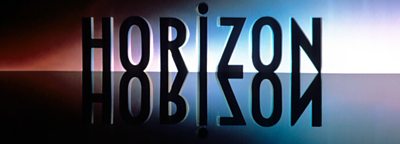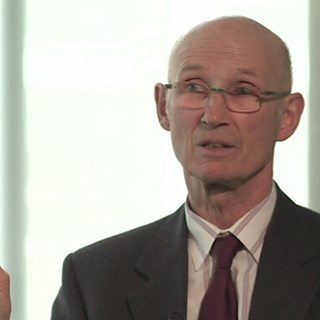2 May 1964, a quarter to 9 in the evening on ����ý Two, the start of something big for the ����ý, the launch of one of the longest ever running science TV strands in history - Horizon. It has remained one of the top-rated science documentary series ever since, and began with a simple philosophy, stated in the first ever programme:
The aim of Horizon is to provide a platform from which some of the world's greatest scientists and philosophers can communicate their curiosity, observations and reflections, and infuse into our common knowledge their changing views of the universe.
Broadly speaking this is still the aim of the programme, but its format has changed over the years. The first ever Horizon was The World of Buckminster Fuller, produced and directed by Ramsay Short. It was an insert in a magazine programme based in a studio, and ran alongside shorter un-related items - as was the fashion in programme making at the time. Initially viewing figures were low, as very few people were able to watch ����ý Two - you needed to invest in a new TV set to see it!
The story begins with excerpts from interviews with three key Horizon staff, Peter Goodchild (Horizon: 1965-1975), Alec Nisbett (Horizon: 1965-1995) and Deborah Cadbury (Horizon: 1992-1999).
Interviews
-

Peter Goodchild
After having trained in studio direction Peter Goodchild (the longest surviving editor of the programme) was asked by Aubrey Singer, then Head of ����ý Science and Features, to make a choice. Did he want to be an educationalist or an entertainer for the rest of his ����ý career? -
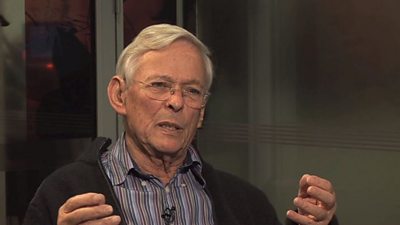
Alec Nisbett
Alec Nisbett, has been described by fellow programme makers as ‘the quintessential Horizon producer’, never shying away from putting hard science on TV. -

Deborah Cadbury
The first programme Deborah worked on for the ����ý was on a series which was something of a training ground for many a Horizon producer, Tomorrow's World (����ý: 1965-2003). She won many awards for her work on Horizon including Emmys and BAFTAS. -

Simon Campbell-Jones
Simon’s first film for Horizon was broadcast in January 1969, and was called The Miraculous Wonder: the Human Eye. Narrated by Christopher Chataway, the programme asked if human eyes “were windows to your soul, the receiver of irrelevant information, respectable substitutes for sex, something like footballs? Or a piece of the brain looking out at the world?” -

Peter Jones
Peter Jones had been watching Horizon from the very early days, soon after the studio based magazine format was phased out, and just knew he had to be part of the programme. -
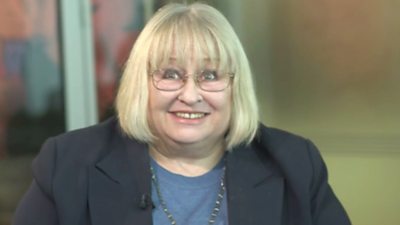
Sarah Carr
With a large team of directors, producers, production assistants, and researchers, keeping Horizon on schedule and within budget was no mean feat. Unit Manager Sarah Carr had the mammoth task of keeping the Horizon ship afloat, which she did with wit, charm and firmness! -

David Dugan
David Dugan joined Horizon in 1976 as a researcher, having only contributed science articles to the national press before. He heard about his appointment to the programme by what today would be considered antiquated means – telegram! -

Andrew Cohen
Arguably the rise through the world of TV science, of the hugely popular and highly successful physicist and communicator Professor Brian Cox, was down to Andrew Cohen. -

Maggie Bebbington
By 1992 Director General Michael Checkland had seen through the introduction of the inital phase of the ����ý’s internal market called Producer Choice. For a Unit Manager like Maggie Bebbington there were a few surprises in store. -

Edward Goldwyn
Ed Goldwyn joined the ����ý in 1962 first as a researcher, then producer in schools, education, and Open University programmes. He was anxious to move to Horizon which had impressed him since it first began in 1964. -

Tessa Livingstone
Horizon is known for its specialist and engaging science films, but occasionally the production team finds itself in a breaking news situation when on location. -

Martin Freeth
The pressures of the multi-channel world were not a concern for earlier Horizon film makers. Although Martin Freeth experienced some of the changes brought about by digital TV, his Horizon career (1971–1997) rarely encountered pressure to deliver anything other than ‘a good programme’. -

Chris La Fontaine
Such was the power of television in the 1970s (there were only three TV channels in the UK until 1982), that sometimes it was enough to simply look behind the scenes of an institution and see what went on there. -

Graham Massey
Horizon soon started to make itself known as a vehicle for breaking science stories and questioning accepted wisdoms. Graham Massey was Head of ����ý Science between 1989-91, and was a Horizon film maker between 1974 and 1985. -

John Lynch
When John Lynch joined Horizon in the 1970s, simply revealing how something ‘worked’, without necessarily telling any ‘story’ as such, provided sufficient interest for audiences. -

Christopher Sykes
In 1980 Christopher Sykes wrote and produced The Slatemakers for Horizon. It was this programme that triggered his own unique approach to science television. For Chris, people were the key to successful science documentaries. -

Jana Bennett
It took until 1990 for the ����ý to appoint a women to the position of Editor, Horizon. It had not been a straightforward journey for Jana Bennett who took the job, having faced some less than positive views about the role of women in broadcasting.
About the interviewer
Simon Campbell-Jones joined the Horizon team in 1968, and produced and directed a huge range of programmes, covering very diverse topics. He was the series editor until 1982, but continued to make editions of the programme until 1995.
He started work on Horizon without a science background, having joined the ����ý after making industrial films. Once inside the Corporation, he didn't join Horizon immediately, but made quite an impact on his arrival nevertheless, producing one of the most watched television films of all time.
It was a short instructional film to demonstrate how colour TV sets should be adjusted! Shown literally hundreds of times on ����ý One and ����ý Two from 1967 until the early 1970s, it was this short film that propelled Simon toward Horizon, which was just four years old when he joined it.
Find out more about Horizon
-
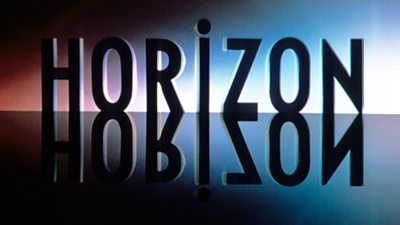
Horizon at 60
A celebration of the long-running science programme by Dr Tim Boon and Dr Jean-Baptiste Gouyon from The Science Museum. -
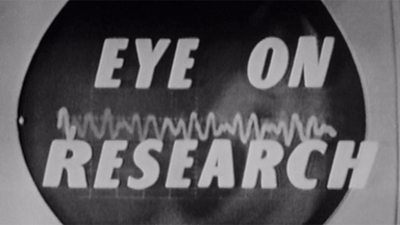
The other side of Horizon
The science programmes that came before -

Horizon 60 interviews
A sequence of interviews with the makers of Horizon over its 60 years.
